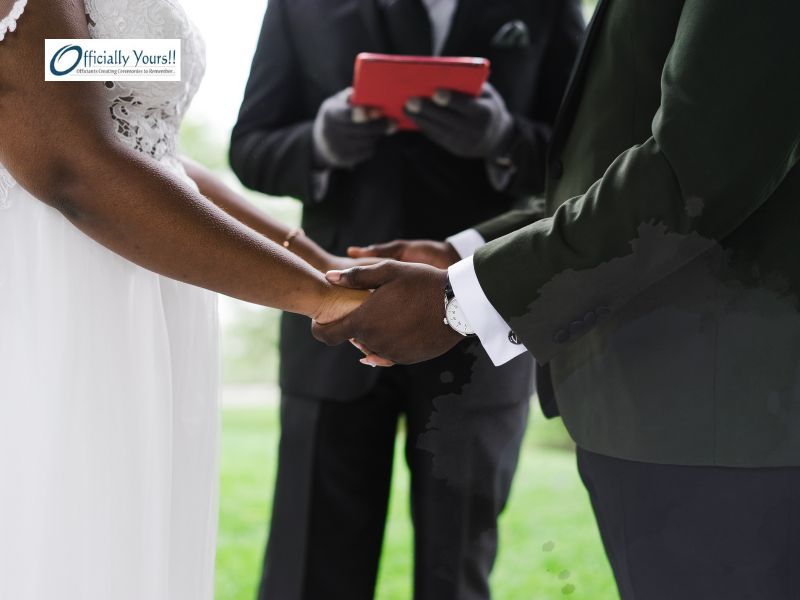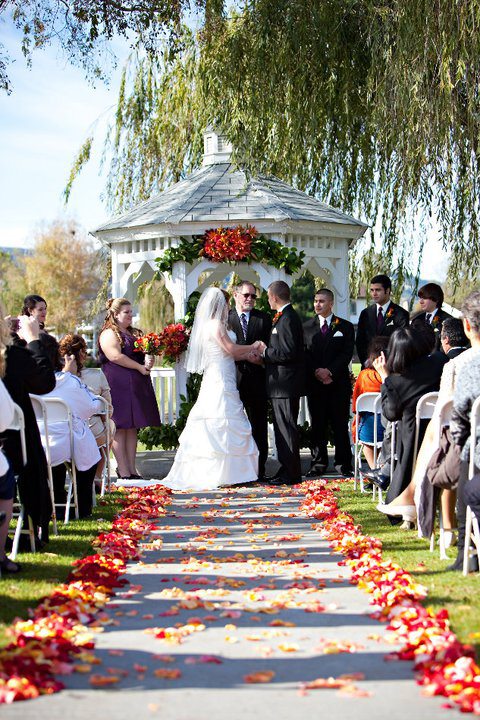Do You Need an Officiant to Marry You?
Do You Need an Officiant to Marry You? Planning a wedding involves a long list of decisions, from venue and dress to music and bouquet choices. One question that often comes up early in the process is whether you truly need an officiant to marry you. While some couples opt for a quick courthouse ceremony or a self-uniting option, many find that a professional wedding officiant offers tangible benefits that can shape the entire experience. In this post, we’ll explore the role of an officiant, the benefits of hiring a professional, and how to decide what’s best for your ceremony.
What does an officiant do?
An officiant is a person who is authorized to perform a wedding ceremony. Their responsibilities can include:
- Guiding the script and flow of the ceremony
- Ensuring the ceremony meets legal requirements in your jurisdiction
- Personalizing vows and readings to reflect your relationship
- Coordinating with the venue, music, and any religious or cultural elements
- Providing reassurance and support to the couple and their families
In some places, you must have a recognized officiant, such as a judge, religious leader, or a licensed celebrant, to legally wed you. In others, the laws are more flexible and allow a friend or family member to become authorized to perform the ceremony. It’s essential to verify local regulations before making a decision.
The benefit of professional wedding officiant
Choosing a professional officiant offers several advantages that can enhance the ceremony and reduce stress on the wedding day.
- Expertise and professionalism: A seasoned officiant knows how to manage timing, vocal delivery, and stage presence, ensuring the ceremony runs smoothly.
- Legal accuracy: An experienced officiant stays current with local marriage laws, filings, and required documents, helping prevent last‑minute hurdles.
- Personalization: Professionals often work with you to craft a ceremony that reflects your values, beliefs, and personalities, from the tone to the structure of the vows.
- Cohesion with the wedding team: An officiant who understands wedding production can coordinate seamlessly with planners, musicians, and photographers.
- Calm presence: For many couples, having a calm, composed professional at the front helps nervous partners feel supported and grounded.
Types of officiants to consider
- Religious leaders: If faith is central to your wedding, a priest, rabbi, imam, or other faith leader can officiate, bringing spiritual significance and tradition.
- Civil celebrants: These professionals focus on secular weddings and can tailor the ceremony to your preferences without religious language.
- Justice of the Peace or government-appointed officials: In many regions, these officials have statutory authority to perform marriages.
- Professional celebrants: A dedicated wedding celebrant specializes in crafting customized ceremonies for couples with varied backgrounds and beliefs.
- Designated friends or family (where legally permitted): Some jurisdictions allow a non-professional to become authorized for a one-time ceremony, often requiring a training or filing process.
Customization: making the ceremony yours
One of the biggest advantages of hiring a professional is the ability to customize. A skilled officiant will:
- Help you write or edit vows to feel authentic and meaningful
- Suggest readings, poems, or songs that fit your theme
- Create a ceremonial script that balances humor, sentiment, and tradition
- Incorporate cultural or familial rituals with sensitivity and respect
If you’re planning a destination wedding or a mixed-faith ceremony, a professional officiant with experience in those contexts can be particularly valuable.
Costs and considerations
The cost of a professional officiant varies widely based on location, experience, and the level of customization. Some common pricing structures include:
- Flat fee for ceremony service
- Hourly rate plus rehearsal time
- All-inclusive packages with other wedding services
Beyond price, consider:
- Availability on your date and location flexibility
- Communication style and responsiveness
- Willingness to collaborate with other vendors
- Availability for a rehearsal and pre-ceremony meeting
Do you need an officiant for a legal marriage?
This largely depends on your locale. In many places, you must have a legally authorized officiant to perform the ceremony, and the officiant is responsible for filing the license. In others, non-traditional options or self-uniting ceremonies are permitted, but you’ll still likely benefit from legal guidance to avoid mistakes. Always check with your county clerk or local government to confirm requirements well in advance.
Planning tips if you hire a professional officiant
- Start early: Popular officiants book up quickly, especially during peak wedding season.
- Share your story: Provide photos, notes, and meaningful moments to inspire a personalized script.
- Prepare legal documents: Confirm what identification and paperwork the officiant will need to complete the license.
- Schedule a rehearsal: A dry run helps the couple feel comfortable and smooths transitions on the day.
- Communicate your boundaries: If you want humor, tradition, or spirituality, express those preferences clearly.
Alternatives to a traditional officiant
If you’re not sure about hiring a professional, consider alternatives like:
- Courthouse ceremony with a later private ceremony: Some couples opt for a legal ceremony at a city hall and celebrate with a reception later.
- Officiant replacement with a licensed celebrant or registrar: Depending on jurisdiction, this can offer a mix of legal compliance and personalization.
- A friend or family member who is legally authorized: This can add a personal touch, though it may require extra planning to handle the legal filings.
Do You Need an Officiant to Marry You? – Final thoughts
The decision to hire a professional wedding officiant hinges on your priorities: legal accuracy, personalization, and peace of mind. The benefit of professional wedding officiant often lies not just in someone to say “I do” but in the overall flow, legal compliance, and emotional resonance of your ceremony. If you want a ceremony that feels like you, custom, cohesive, and confident, a professional officiant is a worthy investment. Whether you’re drawn to a sacred tradition, a strictly secular celebration, or a fusion of both, an experienced officiant can help you articulate your vows with clarity, dignity, and joy.
If you’re weighing the options, consider a brief consultation or rehearsal to assess fit. After all, your wedding day is about your story and your promise, let the officiant help you tell it beautifully.
Contact Officially Yours!! Today and let us bring our professionalism to your ceremony!



Follow Us!